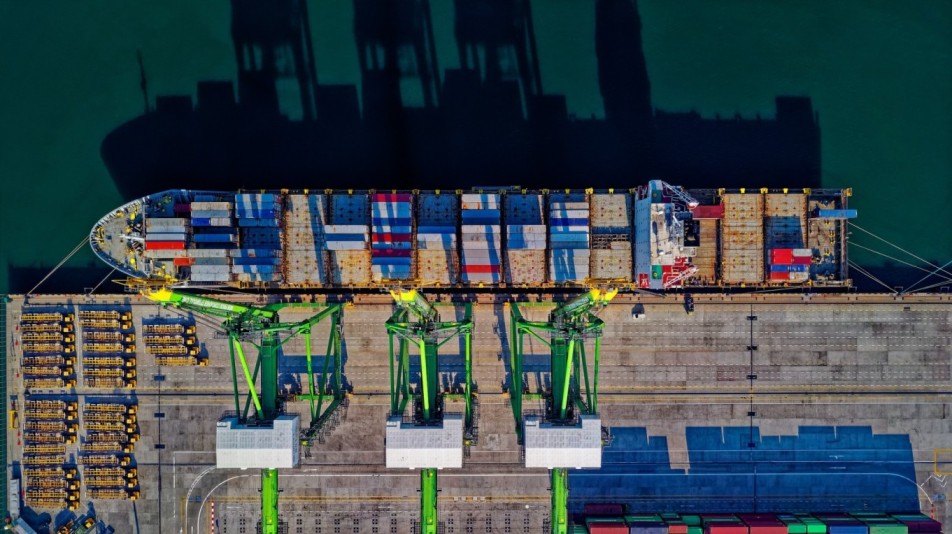True sustainability is underpinned by transparency. As companies across the supply chains are pressured to demonstrate their performance in terms of Environmental, Social, and Governance (ESG) criteria, they must be able to rely on data. Good data management will be fundamental to success, supporting greater transparency and accountability in the Maritime and Energy industries.
In an obvious sense, “if we can’t measure it, we can’t prove it”. And it’s not just regulators that demand concrete data on clean energy performance. Activist investors are becoming increasingly vocal in energy circles. While customers, financiers, and supply chain partners worldwide are pressured to prove their environmental credentials. It’s not just a vocal minority looking for a change, this is the new playing field for the maritime and offshore sectors.
Assessing your global impact
We often think of measuring and proving results in the context of reducing greenhouse gas emissions. For shipping, this means implementing a range of new fuels, clean technologies and operational efficiency measures. All of which need assessment for their tangible impact on emissions. The focus on decarbonization is also leading us towards technologies such as batteries, supercapacitors, and fuel cells.
But there is more than emissions at stake. The entire value chain of new fuels and technologies must be sustainable in the broader sense. Which also includes social sustainability. Open Ownership points out that the reliance on non-renewable natural resources has often been associated with political and economic challenges. Such as illicit financial flows, corruption, conflict, and weak governance. For example, during mining booms, corruption, economic mismanagement, and damage to environmentally fragile areas.
The same issues can be anticipated as the demand for minerals critical to clean technologies increases. Tackling issues such as corruption is critical to ensuring the extraction and responsible usage of these natural resources.
Therefore, as well as measuring and reporting emissions, companies will have to measure and prove their performance on ESG criteria. Which also includes an assessment of their supply chains.
In that sense, transparency and accountability will help not only the planet itself with concrete proof of actions towards climate goals but will help companies build stronger relationships with clients, partners, and authorities.
Use data management to build trust
Stakeholder trust heavily depends on how transparent companies are, and this demand for accountability will likely increase with future generations. So, what is the role of data in this?
Data Management Processes
By collecting information and creating data management processes, companies can understand their activities risks and report internally and externally on their actions to mitigate them. They can also assess the performance of their actions and identify potential improvements. Improving data governance is a significant step towards more accountability within the supply chain and for the end customer. But how can you trust reports from companies that don’t have comprehensive data processes in place? With new fuels and new technologies that support the energy
transition, we will have to assess both our supply chains and our own operations to make sure that we use resources in an ethical and optimized way.
That way, data facilitates information sharing between the stakeholders involved, including partners, service providers, suppliers, regulators, and investors. It ensures that they have an up-to-date picture of the situation and are all moving in the same direction.
Proving climate action
Moreover, Data provides proof of the results of actions we put in place and helps us to ensure we are always improving. In the words of management thinker Peter Drucker: “if you can’t measure it, you can’t improve it.”
This need not be as onerous as it might seem. Our experience in the offshore sector has shown that good quality data can help us achieve tremendous progress. For example, in collaboration with Identec and Shell’s fleet in Nigeria, we improved vessel performance using GPS positioning and weather data, along with the vessel’s operation as reported by the captain through noon reports and e-reporting solutions. These insights enabled the shipowner to identify inefficiencies and determine potential fuel savings by improving voyaging practices.
In other words, by providing vital insights into a fleet’s performance, data helps shipowners make more intelligent decisions that will unlock efficiencies and reduce emissions from their fleets. A fact-based approach is the difference between greenwashing and meaningful action.
An evolving response
The regulatory landscape is still evolving, and this means shipping companies can set many of their own goals proactively. Therefore, leading the development of powerful yet practical transparency measures that suit the needs and realities of the industry. We can lead the conversation, demonstrating the power of these goals to simultaneously meet shareholders’ financial expectations and companies’ own ESG aspirations.
The data management processes in place today will need constant updates throughout the sustainability transition. At present, measurements are based on the fuels currently on the markets. How we collect and process data needs to evolve to respond to the arrival of new fuels and energy production and storage systems.
We are entering an experimentation phase in which several options are on the table, yet the perfect solution does not exist. Data will also be essential to understand each option’s advantages and downsides. It will enable the precise measuring of consumption and emissions and the ESG performance of supply chain partners.
At Opsealog, we believe that greater transparency and accountability will help achieve true sustainability, turning obligation into opportunity. The key is to make the most of the data to support the transition. Reinforce trust between partners, demonstrate the impact of measures, and ensure we are constantly improving practices for the greater good.

